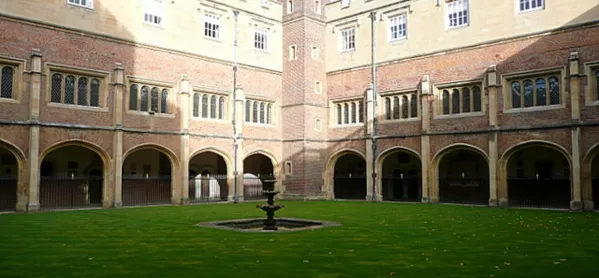Do not presume that because the Headmasters and Headmistresses’ Conference (HMC) has its annual meeting in the same week as the Conservative Party Conference that there are any other links between the two organisations.
In fact, the history of the past two decades is that - at times - Labour has been friendlier towards the independent sector than their traditional bedmates, the Conservatives.
When Tony Blair swept into power with his “education, education, education” manifesto, he offered an olive branch to the independent sector in the form of public-private partnerships - ie, giving cash for joint initiatives between the two sectors such as private schools sharing teachers or sports facilities.
In fact, New Labour made a point of attending and addressing conferences such as the HMC. The Conservatives, with Michael Gove and Nicky Morgan at the helm, did not see it as a high priority.
What both parties do share, though, is a slightly paternalistic attitude towards joint initiatives between the two sectors. Lord (Andrew) Adonis, when he was schools minister, talked of wanting some of the DNA from the independent sector to rub off on state schools as he encouraged more and more private schools to sponsor academies. Now prime minister Theresa May is developing a carrot and stick approach by warning they could lose their cherished charitable status if they don’t do more to foster links with the state sector.
Unhappy marriages
Many independent schools, such as Manchester Grammar School, have plausibly argued that they would prefer to offer their facilities to a wider range of schools in their vicinity rather than putting all their eggs in one basket and sponsoring just one school.
Marriages between the state and private sector haven’t always worked. Dulwich College’s attempt to run an academy ended in divorce and there were hiccoughs when Wellington College tried to launch its own academy. Sometimes teachers who have worked in the private sector all their lives are not best suited to teach disadvantaged pupils in the state sector.
I can agree that the structure by which independent schools are run - more autonomy for the head, no interference from above - can be effective as has been shown by many academies.
However, I couldn’t agree more with Mike Buchanan, head of Ashford school in Kent and the current chairman of the HMC, who said: ”We do not presume to patronise them [state schools] by suggesting we can necessarily run their schools better than they can.”
He warned Ms May that relations between the two sectors would not work if the government had “a gun pointing at our heads”.
This is not to decry the idea of more cooperation between the two sectors - simply to say that it works better when it starts from the ground up rather than from top-down pressure.
After all, if you were a state school, would you really want links with a private school that was only taking an interest in you because of a gun pointing at its head?
What might have been
It is interesting to note in an interview that former Labour education spokesman Tristram Hunt gave to the Evening Standard he said that he, David Laws and Michael Gove were engaged in tentative private talks before the last election to determine areas where they could agree on policy - to try and give a bit more stability to schools in the event of a change of hand on the tiller.
In the end, we ended up with not one but two changes of government after the election and I doubt whether even Mr Gove could have predicted the reversion to grammar schools under the May administration. Ironically, there might have been consensus between the three negotiators on this issue - but it would have been a consensus entirely at odds with the current prevailing wind.
Richard Garner was education editor of The Independent for 12 years, and has been writing about education for more than three decades
Want to keep up with the latest education news and opinion? Follow TES on Twitter and like TES on Facebook




